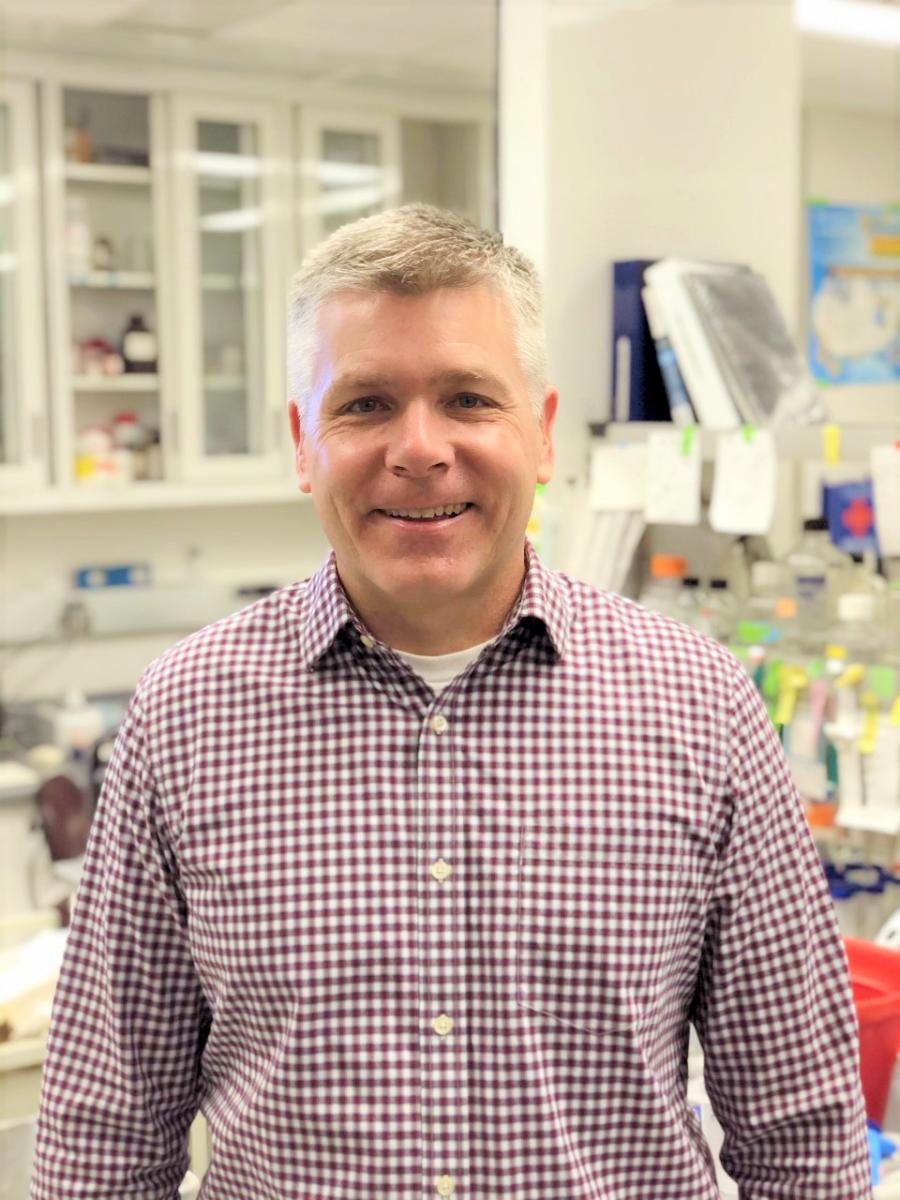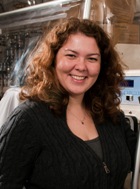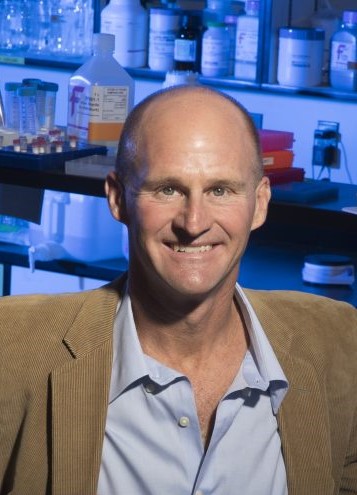The numbers of published papers on oxidative stress and its impacts on health and disease has expanded an order of magnitude over the past decade, underscoring the fundamental importance of this research area in a comprehensive program to address molecular mechanisms of disease. Research in redox biology includes the study of reduction-oxidation events in metabolism, signaling pathways, stress response, and cellular repair that are essential for growth and development. The Redox Biology Center is an internationally recognized leader in redox biology and has developed innovative, multi-disciplinary, and multi-campus research programs. The Center continues to mentor new investigators and develop research infrastructure to advance all aspects of the basic and translational questions surrounding redox biology in health and disease. The Center has a critical mass of NIH-funded research in diverse fields, and provides unique training opportunities in this area to students within and outside the MMoD program. This mentor team is investigating how critical redox buffers are generated, maintained, and manipulated to alter cellular physiology, which is relevant to cancer and neurogenerative diseases and is integral to research in all other emphasis areas in this proposal. Mass spectrometric and structural/biophysical methods of analyzing individual proteins that modulate stress impacts lend exceptionally powerful quantitative approaches to this training emphasis.

Donald Becker
Charles Bessey Professor of Biochemistry, Biochemistry Department Chair, Redox Biology Center Director
Research focus: Role of proline in redox homeostasis and apoptosis.
University of Nebraska-Lincoln
Department of Biochemistry
1901 Vine Street
N258 Beadle Center
Lincoln NE 68588-0664
402-472-9652 Lab: 402-472-9653
Research interests
Proline is an important amino acid for protein synthesis, particularly incorporation into fibrous architectural proteins such as collagen, and also for cellular redox balance and protection against oxidative stress. In humans, aberrant proline metabolism due to genetic loss of its biosynthetic or degradative enzymes leads to neurological disorders, skin hyperplasticity, and osteopenia. Reactive oxygen species (ROS) generated from proline oxidation have been shown to induce cell signaling processes that impact cell survival and cell death. Proline-dependent ROS signaling induces apoptosis and suppresses tumor growth, whereas under different metabolic conditions, proline has been shown to increase cell growth and tumor survival. Understanding the complex regulation of proline metabolism in cancer and the mechanisms by which proline metabolism influences intracellular redox homeostasis and ROS signaling is a major effort of Dr. Becker's laboratory. Students in Dr. Becker's laboratory are working on projects related to the detailed biochemical characterization and comparison of proline metabolic enzymes from multiple organisms, as well as the determination of mechanisms and signal transduction pathways underlying the protective functions of proline.
Research interests
Methanogenic organisms impact agricultural biomass and mammalian gut function. Most of these organisms are strict anaerobes whose metabolic needs and impacts on the host organism are mediated through the action of unique electron transport pathways. The Buan laboratory uses methanogenic archaea as a model organism to understand responses to physiological and pathological oxidative stressors.
Research interests
Novel antibiotics and other bioactive agents from microorganisms often can be produced or synthesized in large quantities at an affordable cost, so the study of underlying biosynthetic pathways for these complex, small molecule structures has the potential to advance both basic and applied research. Dr. Du's laboratory has identified small molecule products from the gliding bacteria Lysobacter species and fungal endophytes that have antibiotic, anticancer, and antifungal properties. Students in Dr. Du's laboratory are working to understand and exploit the redox-sensing biosynthetic pathways for these products so they can be engineered to function with high yields in controlled expression systems, and as paradigms for orthologous oxidative stress sensing pathways in more complex organisms.

Nicole Iverson
Assistant Professor of Biological Systems Engineering
Research focus: Use of carbon nanotube sensors to determine intercellular and intracellular signaling associated with quiescent and diseased cells.
University of Nebraska-Lincoln
Department of Biological Systems Engineering
233 L.W. Chase Hall
Lincoln NE 68583-0726
402-472-0884
Research interests
Nitric oxide (NO) and reactive oxygen species are important signaling molecules in both healthy and diseased cells. Current technology does not allow for spatial and temporal quantification of reactive species. A newly developed carbon nanotube sensor for NO was first placed within a cell and living animal by Dr. Iverson and her colleagues during her post doctorate work. Dr. Iverson is using her knowledge of carbon nanotube sensors to deliver NO sensors to cells and animals and to study the role of NO in biological processes. Additionally, there is a hydrogen peroxide sensor that is also comprised of a carbon nanotube that is being developed for in vitro and in vivo use.

Oleh Khalimonchuk
Susan J. Rosowski Professor of Biochemistry
Research focus: Oma1 in mitochondrial oxidative function
University of Nebraska-Lincoln
Department of Biochemistry
1901 Vine Street
N230 Beadle Center
Lincoln NE 68588-0664
402-472-8060
Research interests
Mitochondria generate reactive oxygen species during respiration, but they are also highly sensitive to oxidative stress, buffered by specific mitochondrial protein quality control mechanisms. Research in the Khalimonchuk laboratory is focused on understanding the proteins that sense mitochondrial oxidative stress and how they regulate mitochondrial integrity. In particular, the Khalimonchuk laboratory uses yeast and mammalian cell culture models to examine inner mitochondrial membrane protein complexes sensitive to oxidative stress and the role of the oxidation-sensitive mitochondrial protease Oma1.
Research interests
Normal cellular functions are dependent on specific metals. Because cells are sensitive to metal toxicity and metal-induced oxidative damage, the uptake, distribution, and export of metals must be tightly controlled. Dr. Lee's research focuses on understanding the function and regulation of membrane metal transporters that import or export metals such as copper, cadmium, and potassium. His lab has identified new metal transporters and shown novel modes of post-translational regulation that organisms have evolved to use inorganic elements with minimal toxicity. Students in Dr. Lee's laboratory use a combination of mouse models, mammalian cell lines, yeast genetics, and Drosophila to identify and characterize molecular factors involved in metal metabolism, determine cellular consequences of metal dyshomeostasis, and advance therapeutic control of metal metabolism.
Research interests
Key questions about protein evolution require experimental insights into the phenotypic effects of individual mutations and the nature of compensatory interactions. Research in the Storz laboratory addresses questions about mechanisms of adaptation by integrating evolutionary analyses of sequence variation with experimental studies of protein biochemistry and physiological function. Much of the research focuses on hemoglobin, the red blood cell protein that is responsible for circulatory oxygen-transport in red blood cells. In addition to basic research on mechanisms of hemoglobin adaptation, insights into functional effects of mutations and their compensatory interactions can guide the design of recombinant hemoglobins for use as cell-free oxygen-carriers in transfusion medicine

Rebecca Wachs
Assistant Professor of Biological Systems Engineering
Research focus: Use of carbon nanotube sensors to determine intercellular and intracellular signaling associated with quiescent and diseased cells.
University of Nebraska-Lincoln
Department of Biological Systems Engineering
248 L.W. Chase Hall
Lincoln NE 68583-0118
402-472-2262
Research interests
Low back pain is a problem that will affect the majority of the people at some point in their lifetime and is the leading cause of disability. Conservative therapies for chronic low back pain often includes opioid prescriptions, further enhancing the epidemic. The Wachs’ lab seeks to develop novel biomaterial and antioxidant-based therapies that target the undesired nerve growth and stimulation locally in the painful tissue, thereby circumventing the need for opioid prescriptions. To attain these research goals, the approach is two-fold: 1) Develop in vitro test beds and small animal models of chronic low back pain, and 2) Characterize pain inducing phenotypes in chronic low back pain patients and then target these factors with novel therapeutics.

Mark Wilson
Professor of Biochemistry
Research focus: Redox regulation of DJ-1 function; structural biology.
University of Nebraska-Lincoln
Department of Biochemistry
1901 Vine Street
N118 Beadle Center
Lincoln NE 68588-0662
402-472-3626
Research interests
DJ-1 is a protein implicated in a variety of diseases (e.g., prostate cancer, Parkinson's Disease) and plays an important role in the cellular defense against oxidative stress and mitochondrial damage. Cells lacking DJ-1 accumulate reactive oxygen species and die prematurely, and neuronal cells of the midbrain appear to be particularly sensitive to DJ-1 deficiency. Dr. Wilson has applied structural and biophysical approaches to examine specific molecular features that allow DJ-1 to respond to reactive oxygen species. Interestingly, he has shown that the protein initially requires an oxidation event at a conserved cysteine residue for its cytoprotective activity, and that this event regulates subsequent apoptotic signaling. Students in Dr. Wilson's laboratory are currently examining the structural elements of DJ-1 that lead to its oxidative sensing through cysteine oxidation, comparing structure and function of DJ-1 homologues from diverse organisms, and examining the molecular basis for pathogenesis of clinical DJ-1 mutants.
Research interests
Owing to their versatile reactivity, transition metals are widely used as a powerful weapon by the host and bacterial pathogens during infection. Knowledge on the structure and function of metalloproteins involved in the metal homeostasis and stress response are highly desirable because of their potentials as promising targets for new antimicrobial therapies. Research in the Zhang laboratory focuses on metalloproteins in sensing and responding to redox stress. Students in the Zhang group use interdisciplinary approaches to decipher action mechanism of these redox sensors.




